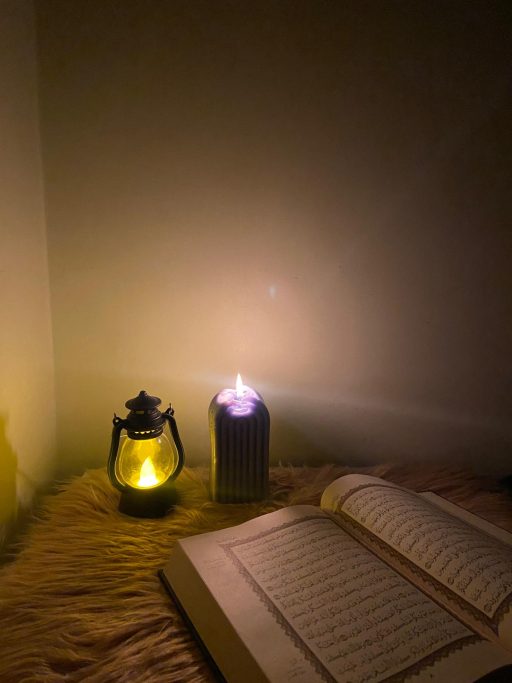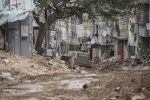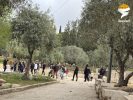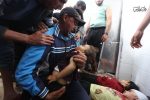Muslims all over the world hail the holy month of Ramadan, the ninth and most sacred month in the Muslim calendar, with much joy and pleasure.
Holding wide celebrations that include decorating streets, markets, and homes, Muslim people express their willingness to fast and do more good deeds.
Making special dishes like Molokhya and other sweets such as Qatayif, Muslims in Gaza prefer to share such meals with relatives and friends throughout all the days of the holy month.
Therefore, extended families usually visit the grandparents’ house, with more chances to get together, first for meals and second for praying Tarawih, the special Sunnah prayer performed after Isha prayer.
Horrors invading last Ramadan
To their disappointment, people in Gaza couldn’t perform the main above-mentioned aspects of celebration throughout the last Ramadan.
The large-scale Israeli bombardment and the ground invasion operations, in addition to the blockade, had been ongoing all over the enclave, snatching out the serenity of this religious occasion.
The brutal offensive against the enclave has caused the destruction of 92 percent of housing units and 79 percent of mosques in Gaza, leaving no room for the most essential part of Ramadan—gatherings.
A hopeful beginning
Even with this lasting effect of the genocide, the coming of this Ramadan might be considered as a gift.
This year, the first of March, 2025, coincides with the beginning of Ramadan, the first Ramadan following the ceasefire agreement and the return of displaced people to their lands in northern Gaza.
In spite of the huge destruction and the growing financial crisis, it was not impossible to make decorations and give visits on the eve of Ramadan. No one would choose to miss out on such revelries.
Moreover, finding a replacement for places of worship such as mosques had never been a dilemma. Many initiators have set up huge tents all over the Strip where Tarawih prayer can be performed each Ramadan night.
Unhealed wounds
But the old wound that this Ramadan opens is the wound of the families who will observe Ramadan without their precious beloveds: martyrs, imprisoned, or even missing.
With more than 46,707 Palestinians killed during the last genocide against Gaza, almost each family in Gaza is welcoming Ramadan painfully.
What do you think it would feel like when you observe the month of gathering, for instance, as a sole survivor among a massacred family?
You might notice that most of Gaza families, though making visits, choose not to make decorations, for grief has left no room for happiness in their hearts.
Every aspect of happiness is empty. It’s not a wall to be rebuilt or a window to be repaired. It’s the essence of any gathering—family.
Bereaved families observing Ramadan
Another hope in Ramadan is the great chance of your prayers to get accepted and answered. For the bereaved people of Gaza, they never prepare wishlists of prolonged and successful lives any more. Instead, it is more likely to be one wish: reuniting with their martyrs in Jannah.

Realizing that virtuous deeds are multiple in the month of Ramadan, the bereaved people of Gaza find solace and comfort.
One of the good deeds families of martyrs in Gaza do is holding Iftar Maida’hs, meals shared with a group of relatives or the needy to break their fast, announcing that this good deed is a gift to the soul of their martyrs with the aim of praying for them and keeping their memory present among themselves.
But for those who couldn’t afford it, there is a more precious gift they can give for their deceased: Quran Khatma, completing the recitation of the Holy Qura’an on behalf of the martyr.
I wonder, will the thirty days of Ramadan be enough to hold meals and complete Qura’an Katmahs for all our martyrs?
-Amna Shabana is a Gaza-based journalist. She contributed this article to the Palestinian Information Center.











